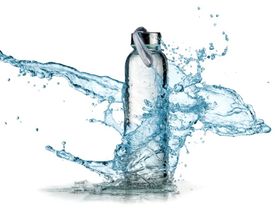Is Bottled Water a Viable Solution to Tap Water?
Updated February 17, 2025

Every day, millions of people choose bottled water over tap water, swayed by the perceived superiority of bottled water in terms of safety and convenience. However, the reality may be more complex than what meets the eye. Let's delve into the murky waters of bottled versus tap and shed light on regulatory practices, potential health hazards, and environmental ramifications of bottled water.
Regulation of Bottled Water
Contrary to popular belief, bottled water isn't necessarily subject to stricter regulation than tap water. Both follow different regulatory paths – bottled water falls under the purview of the Food and Drug Administration (FDA), while tap water is governed by the Environmental Protection Agency (EPA). Here's a surprising fact, revealed by water expert and New York Times Bestselling Author Seth Siegel:
Furthermore, interstate bottled water regulations are often self-imposed, casting doubt on their rigor and consistency. This points to potential risks around the storage and safety of bottled water.
Health Hazards of Bottled Water
Bottled water is generally stored in plastic bottles composed of chemicals derived from natural gas, coal, or petroleum. Phthalates, commonly found in these bottles, are linked to adverse effects on fetal development and sexual and reproductive health. Seth Siegel explained the problem with these substances in his interview at the MAYU Water Appreciation Academy:
Assessing Regulated and Well-Stored Bottled Water
You might ask, "What if my bottled water is well-regulated and stored in a cool environment? Is it safe then?" Unfortunately, bottled water's extended shelf life throws a wrench in the works. Bottles may sit for a year or more in various storage conditions, sometimes exposed to high temperatures in warehouses or during transportation. This can heighten the risk of chemical leaching, with potential long-term effects on fertility, sexual health, and overall well-being that are yet to be fully understood.
Environmental Impacts of Bottled Water
Beyond health concerns, plastic water bottles wreak havoc on our environment. From manufacturing and transportation to disposal, they contribute to pollution and waste. An estimated 74 billion plastic water bottles were sold last year, but shockingly, only about 10% were recycled.
Unbottling the Truth: What's Next?
Bottled water may offer convenience and perceived safety, but it carries its own set of complications. The inconsistent regulation, possible health risks associated with plastic bottles, and environmental fallout make it less ideal for sustained use. So what's the alternative?
Here's the good news: improving tap water quality or using home filtration systems at the point of use offers more sustainable paths to clean drinking water. Consider using a water aeration system to refresh your water post-purification and adding minerals for a balanced water experience. And when it comes to storage, opt for 100% glass bottles over plastic ones to minimize microplastics and prioritize your health.
Yes, it can be challenging to remain vigilant about the water we consume daily. But small, conscious decisions can lead to a significant positive impact on our health and the environment over time. It's not just about the water we drink, but also about the world we want to leave behind. It's time to rethink our choices and turn the tide.












































